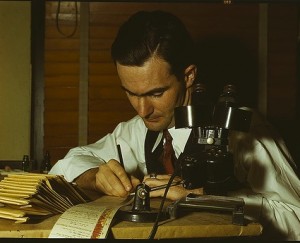No Worries!
 My clients are asked to gather information on their animals as we go through treatment. Often, symptoms that come and linger are the signposts showing it’s time to find the next remedy needed to continue the journey back to a vital, healthy animal.
My clients are asked to gather information on their animals as we go through treatment. Often, symptoms that come and linger are the signposts showing it’s time to find the next remedy needed to continue the journey back to a vital, healthy animal.
Is This Bad?! Time To Worry?
Here’s an email report I received recently, useful to illustrate a way of looking at health and disease:
I saw a little white spot at the opening of Calvin’s anus and after getting a tissue realized it was maybe pus? It’s creamy white colored and maybe that is why he keeps licking that area…Is that something we need to be concerned with right now?
I assured my client that we wouldn’t worry about this, but instead, learn all we can about this discharge and how Calvin is licking this area. Calvin is talking to us! Giving us useful information to get him well!
Why Symptoms Are Useful
The basis of homeopathic prescribing is in viewing everything that’s not well about a patient, and objectively listing this to help us find a proper remedy.
The Cliff’s Notes version of how homeopathy works is that, if a patient is suffering in a certain way, and they (or their owners, in the veterinary situation) can describe that, a remedy can be found that could create the same symptoms if taken in excess by a healthy individual. That remedy will, in very minute doses, spur the sick individual to heal himself.
Add It To The List
So, I learn all the symptoms I can during an intake, whether that’s in the clinic or over the telephone with my long distance clients.
Examples of symptoms I come to know often include:
- Itching, shedding, and coat quality in general
- Twitching in sleep, or vocalizing, or running
- Eye discharges, including color, consistency, time of day, one eye or both
- Stools that are too frequent (Four a day? Wow!) or too infrequent (Every 3 days? Hmmm.)
Scat Talkin’
This latter realm can lead to interesting phone time when my client is calling from work.
Me: “Can you describe this loose stool? More like pudding or more like water?”
Client, looking around nervously, with lowered voice: “Errr, ah, pudding.”
Me: “Uh huh, and how is the odor? Is it more foul than usual?”
Client: “Erm, yes, quite foul.” Now quite sure that people are overhearing this weird conversation.
Me: “And how about straining before, during, or after the stool? Or does it just pour out easily?”
Client: “I, ah, really couldn’t say…”
Me: “I see. Because you haven’t looked closely, or because you have office mates who are beginning to wonder about you and how this conversation could possibly be relevant to your work?”
Client: “Yes, the latter, thank you Mr. Jones, I’ll see that we get this taken care of for you right away!” Click.
A Picture is Worth…
Stella had a knack for getting gorgeous pictures of her dog’s stools, and because my records are all digital, I could paste these right into the record for future reference. Like this beauty:
I really appreciated the firsthand, up-close information this provided, seeing things in their natural environment, and was grateful to be spared the odor by viewing it from the comfort of my Mac, miles away.
Don’t Worry, Be Thankful
So, in homeopathy, as in probably most areas of life, worry never helps anyone. It’s far more useful to put that energy into learning what your animal is “saying” with her symptoms. The more we know, the more accurate can be the homeopathic prescription, and the quicker we can get her well.
And that’s really the goal of it all, isn’t it?





Friends have tried to convince me I was a pervert for even watching my dogs defecate, never mind take pictures! It’s useless to tell them the quality of a stool gives us valuable information about what’s giong on inside the dog! Regardless of what they call me, I still watch, and I find out things before the average Vet would think there were coherent symptoms.
Indeed, Doria, why ignore useful information, right? We just have to find the right tribe to talk to, and then no fingers are pointed or heads shaken in disgust or judgement. If the average person doesn’t understand, we just don’t interact about these matters with that person. Wrong audience.